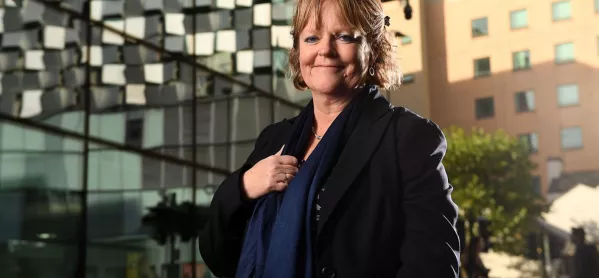The Department for Education must “do everything possible” to help schools engage in teacher training reforms or the plans “will fail”, one of the architects of the shake-up has warned.
Speaking exclusively to Tes after the DfE’s response to the initial teacher training (ITT) market review consultation today, Professor Sam Twiselton, director of Sheffield Institute of Education at Sheffield Hallam University and a member of the government’s expert group that advised on the proposals, warned that the delay to the start date for the reformed system “must be used” to ensure that schools “feel positive” and develop a “sense of ownership” to avoid problems.
Professor Twiselton had previously warned that the “very short timescale” proposed for implementing the changes presented “risks to teacher supply and quality”, so welcomed the 12-month delay to the kick-off date for the new system to September 2024, but now wants to see the “extra time” used to ensure that schools are supported to engage with implementation of the reforms.
Initial teacher training: DfE delays teacher training shake-up start to 2024
Mentors: ‘Grave concerns’ over teacher mentoring
Background: All teacher trainers reaccredited in ITT ‘step change’
“Any major reform needs those who are implementing it to feel positive about it and have the opportunity to develop a sense of ownership. The extra time must be used to facilitate this,” she said.
Concerns over initial teacher training reforms
“It will also be important to do everything possible to strengthen school capacity to engage in ITE [initial teacher education], as without this the reforms will fail, ” she added.
Her comments come after the DfE announced this morning that teacher trainees will not now start newly reformed courses until September 2024 - a year later than originally planned. The slowing down of the process came after heads’ and teachers’ leaders called for the reforms to be halted over fears they would “irreparably damage” the future pipeline of new teachers.
Professor Twiselton told Tes that the DfE needs to ensure that it works with “people who speak for schools”, such as school leader unions, to ensure that implementation of the changes, including intensive practice and training and the lead mentor role, would work “from schools’ persepective.”
“This would hopefully help inform how providers are supported by DfE and also help schools feel both listened to and become excited about the potential in these reforms,” she said.
Commenting on the DfE’s decision not to move on its proposed timescale for the reaccreditation of providers, despite strong criticism from the sector, Professor Twiselton stressed the importance that the process is “fair, transparent and proportionate”.
“Providers need to be able to focus on positive implementation planning, including strengthening school capacity. It will be important that they are not distracted from this vital task.”




